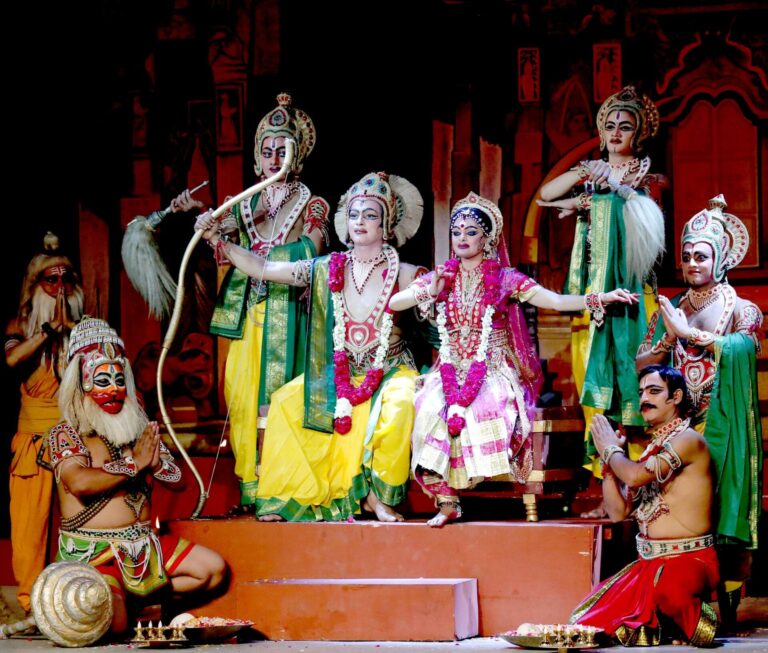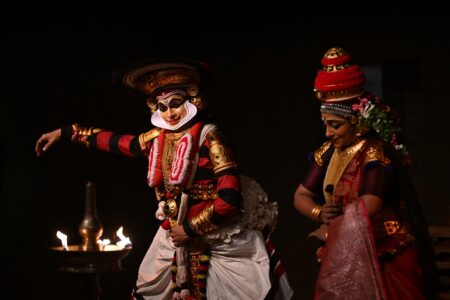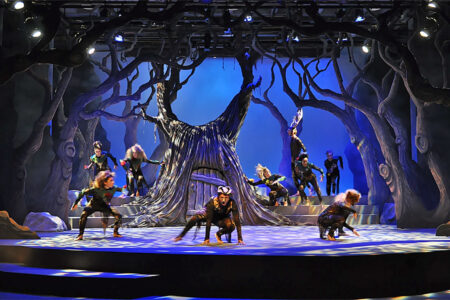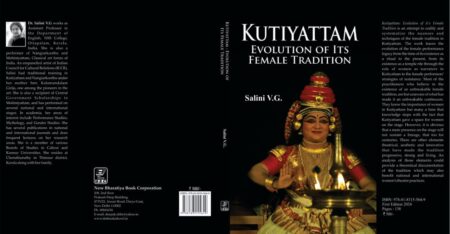In the heart of Delhi, Shriram Bhartiya Kala Kendra has been a beacon of cultural vibrancy for the past 67 years, captivating audiences every Navaratri season with the iconic Ramlila dance drama, ‘Shri Ram.’ As the show surpasses 3000 performances, the driving force behind this cultural legacy, producer-director Shobha Deepak Singh, stands as a testament to a lifetime of dedication.
A Padma Shri recipient in 1999 for her contributions to arts and culture, Shobha was honoured recently for her contributions with Sumitra Charat Ram Lifetime Achievement award joining a distinguished list of awardees, including Pt Birju Maharaj, Vidushi Kishori Amonkar, and Ustad Amjad Ali Khan, Shobha continues to shape the artistic landscape of Delhi.
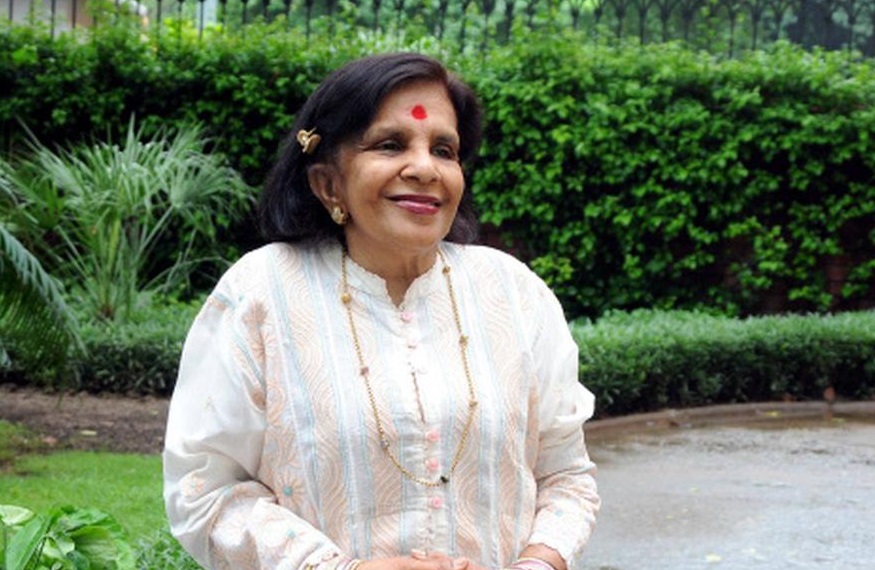
Apart from choreographing and presenting several iconic dance dramas over the years, including Shri Ram, Shobha Deepak Singh is also a celebrated photographer, specializing in the arts. Her three books of photographs include one on musicians, dancers, and theatre artists, representing painstaking chronicling of the arts over the decades.
Taking the legacy forward
The daughter of the industrialist Charat Ram, Shobha was groomed from a very young age into an appreciation of the arts. Her mother, Sumitra, founded the Bharatiya Kala Kendra in 1952, inviting eminent musicians and dancers from all over India to come to Delhi to teach in her center for the arts. Thus, luminaries such as Ustad Hafiz Ali Khan for sarod, Pt Shambhu Maharaj for kathak, the Dagar Bandhu for dhrupad, and Ustad Wahid Khan for surbahar, among many others, played vital roles in shaping the institution. The fledgling institution also initiated an annual music festival in 1952, named Shriram Shankarlal, featuring the finest artists, and it remains today the premier classical music festival in India. In 1972, the complex built Kamani auditorium, which remains a landmark in Delhi; Shobha served as its first manager, ensuring its position as the leading hall in the city. The Bharatiya Kala Kendra has, over the decades, become one of the finest arts teaching institutions in the country. The Shriram Shankarlal Music Festival is the oldest in the capital.
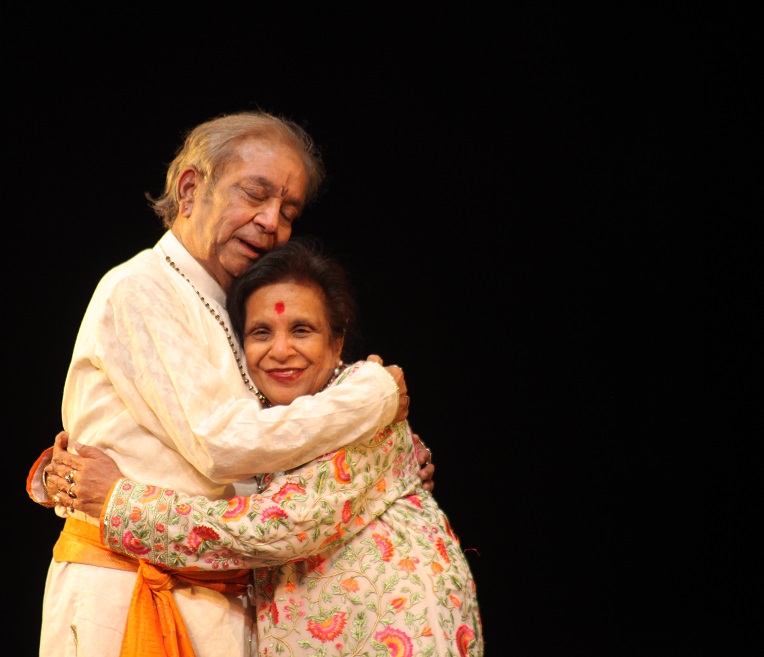
Speaking to the octogenarian, who attended the ceremony in a wheelchair and occasionally needed oxygen, one was struck by her matter-of-fact, gallant response to her physical frailty. “The show must go on” has always been her motto, and indeed, taking part in the creative process, surrounded by artists in her beloved Kendra, always seems to give her the energy she requires.
Shobha shared, “My mother insisted on my sister and myself taking Kathak lessons from the great Pt Shambhu Maharaj. I remember going to his house, with a servant carrying a big basket of fruit and mithai. We also went for singing lessons; later, I chose to learn the sarod and also went in for a course in theatre under Alkazi. I always wanted to learn in every field, not confine myself.” When asked how she could juggle both running a home and the Kendra, Shobha Deepak Singh replied, “I got the full support of my husband, who always encouraged and even pushed me to do more. My mother gave me the confidence to try out things I had not trained in – designing costumes and jewelry, for instance.”
Bringing in younger audience
Going down memory lane, the diminutive Shobha reminisced, “I remember being asked by Andrew Lloyd Webber (the great composer of such classic musicals as Phantom of the Opera, Cats, and Evita) to work with him on his new Broadway show Bombay Dreams, which AR Rahman did the music for. I had to decline as I could not spend 6-8 months non-stop in London. I felt I would miss my husband too much!” she chuckled. Another interesting opportunity she declined was Mahabharat, the 1988 TV series by B R Chopra. “I felt I would not see eye to eye creatively with the team,” Shobha said.
Talking about Shri Ram, which has run consecutively since 1957, Shobha shared how recently they had re-recorded some of the original music to be more relatable to a younger audience. The rotating screens, showing different scenes, were a novelty in the mid-1960s. Back then, physically moving the sets took too much time, so her engineer husband, Deepak Singh, came up with the idea of six rotating screens that could quickly be flipped to show other scenes. Even today, the production is an eagerly awaited event in Delhi’s arts calendar, having been seen by three generations of Delhiites.
Never one to rest on her laurels, Shobha Deepak Singh is looking forward to a new edition of the Shriram Shankarlal Music Festival in April 2024, now in its 74th year. “We start planning for it in advance,” she shared.

